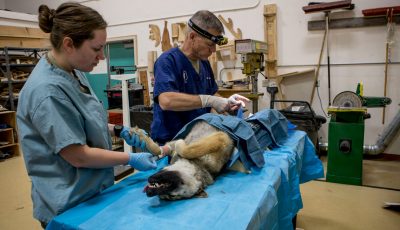BECQ holds workshop on EPA’s Revised Total Coliform Rule
The Bureau of Environmental and Coastal Quality held a workshop for the public water systems in the Commonwealth at Saipan World Resort yesterday.
BECQ’s Safe Drinking Water Program hosted the Public Water System workshop to discuss the new rule established by the U.S. Environmental Protection Agency which will be implemented this year.
“There’s a new rule that EPA had implemented, the Revised Total Coliform Rule, which changes how the public water system is monitored. It’s coming into effect April 1st of 2016,” SDWP branch manager Joe Kaipat said.
“We wanted to make the public water systems know. We have over 100 public water systems,” he added.
EPA published the Revised Total Coliform Rule in 2013, which revises the 1989 Total Coliform Rule and is intended to improve public health protection.
According to Anna Yen of USEPA Region IX Drinking Water Program, EPA made improvements in the rule using E. Coli as a better measurement of whether there is microbial contamination in the system.
“It’s still the same rule in general in its intent that is to protect water systems from pathogenic microbes, and it verifies there’s system integrity that contamination hasn’t gone into the system,” Yen said.
“The Revised Total Coliform Rule made improvements to the current rule. Its improvements had to do with looking at E. Coli as a better measurement of whether there is contamination in the water system whereas before there were different kinds of maximum contaminant levels. When you exceed the maximum contaminant levels then you have a violation. In the revised rule, they changed it to just one type of violation and it’s based on E. Coli,” she added.
Yen added that this is because total coliform is not necessarily and indicator that one has contamination in the system that could impact public health.
“Because there is only a very small portion of coliform that is pathogenic, that’s disease-causing,” Yen said, “EPA determined that it’s better to use that just as an indicator. If you have that, then that triggers other actions that you should take.”
Aside from the RTCR, Phase II-V monitoring, lead and copper rule, and consumer confidence report, among others were also discussed.
Various concerned agencies and establishments attended the workshop such as the Commonwealth Utilities Corp., water companies, and hotels.



























